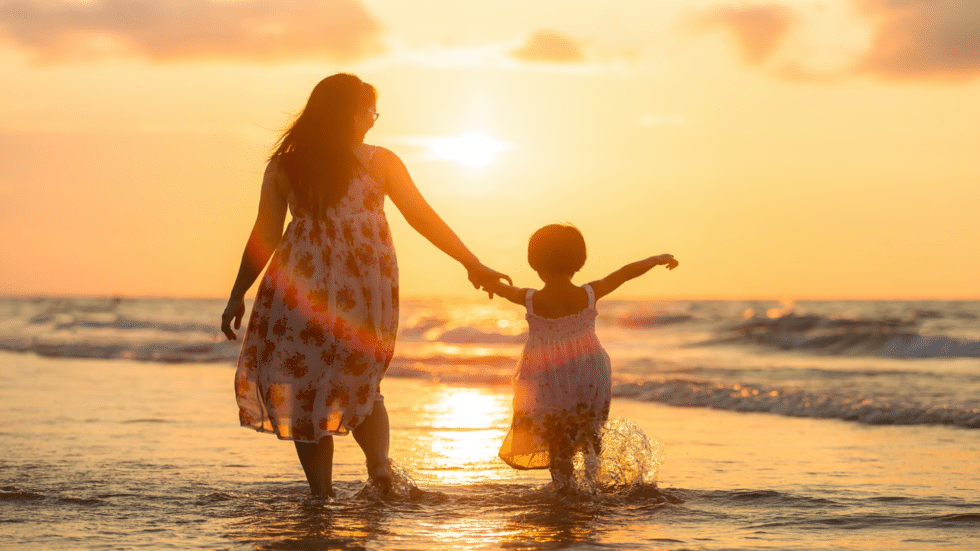Mindful Parenting
One day at a time, one sleepless night at a time…
How mindful, focused parenting can save your sanity
“When you have children, you realize how easy it is to not see them fully, and perhaps miss all those early years. If you are not careful, you can be too absorbed in work, and they will be only too happy to tell you about it later. Being a parent is one of greatest mindfulness practices of all. “ – Jon Kabat-Zinn
There’s nothing like recovering from brain surgery to give you perspective. When I was lying in my hospital bed, thinking about what I wanted to do with the gift of life I’d been given, the one thing which stayed with me the most was the simple fact that every single moment is precious. Yes, even those times when your kid’s screaming the place down.
My surgery forced me to slow down and take stock. I had nothing but time on my hands, so I really thought about what I wanted to do with my life, but more importantly, how I wanted to live it. I realised that I needed to forgive myself for all the mistakes I’d made – they were learning opportunities and boy, have I learned a lot!
When you’re having one of those days, when you’ve had two hours’ sleep before getting up to deal with toileting accidents, non-stop sibling bickering and tantrums, it’s hard to avoid feeling overwhelmed. The last thing you feel like doing is to be mindful and appreciate this moment for what it is.
Yet if you can bring mindfulness to your parenting approach, it can make life so much easier and give you the strength to simply breathe when all you want to do is run away from your little darlings.
Mindfulness is becoming increasingly popular across all walks of life because it brings scientifically proven benefits. It’s more than just the latest hipster fad!
Mindfulness is the simple practice of living in the present moment, being fully aware of where you are and how you’re thinking and feeling. It is a non-judgemental acceptance of your experience which enables you to be kinder and more forgiving towards yourself and takes the edge off any stress you may be feeling.
When you incorporate mindfulness into your parenting approach, you take the time to ground yourself in the moment and respond thoughtfully to whatever your child is doing rather than going with a knee jerk reaction. You accept your child for who they are and in turn accept who you are – and appreciate that you are only ever doing your best, even when you fall.
So it doesn’t mean that you have to fake positivity all the time or pretend that everything’s okay when your child smashes that precious vase your Great Aunt Lydia left you. It is actually okay to feel anger or irritation, believe it or not. But when you are mindful in your response, you don’t let that anger, irritation or any other emotion influence your reactions unduly. You’re coming from a place of informed awareness, which enables you to choose your words and actions with care for the best possible outcome.
There are some simple ways in which you can be more mindful in your interactions with your children:
- Such a simple thing and yet so many of us don’t really listen to our children! From the second they were born, they had different cries to tell us if they were cold, hungry, or needed a cuddle. As they grew, they developed increasingly sophisticated ways of talking to us. Even a tantrum can tell you so much if you just take a pause to look at what’s going on and why. So before you rush in to fix a problem or chastise your child, stop and listen to what’s really going on.
- Practice non-judgemental acceptance. Whatever the situation, it is what it is. Accept what you are currently dealing with instead of wishing things were different. This also means being realistic with your child. Accept them for who they are. Are you expecting them to be able to do something which is simply impossible for them right now? Do you have unrealistic expectations? The sooner you let go of these, the better your relationship with your child will be.
- Be compassionate. You don’t have to like what your child is saying or doing, but if you can be understanding of their behaviour and motivations, it becomes easier to cope with their actions. You should be compassionate towards yourself as well – let go of any self-blame or recriminations when things aren’t perfect.
- Be emotionally aware. If you want to your child to develop emotional awareness, you need to show them what that means. Children learn far more from our actions than they do from any lecture. Our emotions are always affecting our choices, so the more conscious we can be of how we’re feeling, the more we can control how much they influence those choices.
- Think before you act. Building on your emotional awareness, you should pause before you yell or act instinctively so you don’t overreact. We tell our children to count to ten to calm themselves down – we should be doing this too!
See? Being mindful isn’t complicated. It just takes a commitment to actually do it.
If you still have doubts, maybe a quick look at some of the evidence https://www.ncbi.nlm.nih.gov/pmc/articles/PMC6108128/ in favour of mindfulness might convince you it’s worth being more mindful. Mindfulness has been shown to:
- Reduce anxiety and stress
- Reduce feelings of depression
- Reduce aggression
- Make the challenge of parenting feel less onerous
- Enhance communication between parent and child
- Encourage greater parental involvement
- Improves the experience of being a parent
I don’t know about you, but I rather like the sound of that!
So the next time your child is getting on your last nerve, step back and breathe, fully focusing your attention on that breath. Exhale and as you release the breath, send away your anger, stress, and tension. You may even find you can get your child involved in the simple act of breathing. Then, when you have fully embraced your current moment, accept it for what it is. Let your reaction be deliberate and intentional.
You might find it difficult at first to be more mindful in tough situations, but the more you try, the more you’ll find it becomes as natural as, well, breathing!

